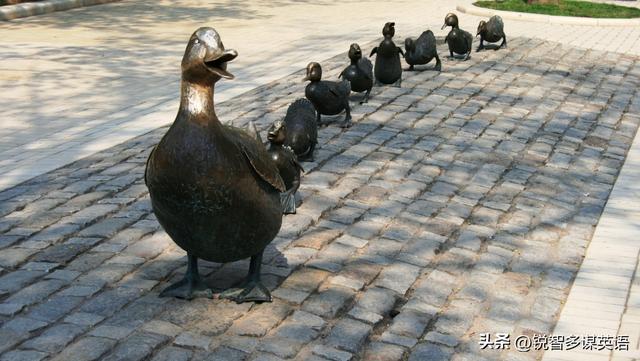中英文成语意向差异众所周知。两种文化找到完全对应的意向十分罕见。如中文“热锅上的蚂蚁”,英文的表述为“A cat on the hot brick”;中文“瓢泼大雨”,英文的表述为“It rains cats and Dogs”等等。所以只有谙熟中英文化才能避免理解上的尴尬。
1. At a snail’s pace 龟速前行Meaning: Moving very slowly. 涵义,运动迟缓。(汉语中用“龟速”替代“蜗牛”。)
This idiom is pretty self-explanatory because we know that snails and slugs move very slowly. This idiom has been used for a very long time. The phrase is found in William Shakespeare’s play “Richard III,” which was written and first performed in 16th century England.
这个习语不言而喻,因为我们知道蜗牛和蛞蝓移动得非常慢。这个成语已经使用了很长时间。这个短语出现在威廉·莎士比亚的戏剧《理查三世》(Richard III)中,该剧于16世纪在英国创作并首次演出。
Example: Traffic is moving at a snail’s pace. 例如,车辆龟速爬行。(汉语用“龟速”替代“蜗牛”。)
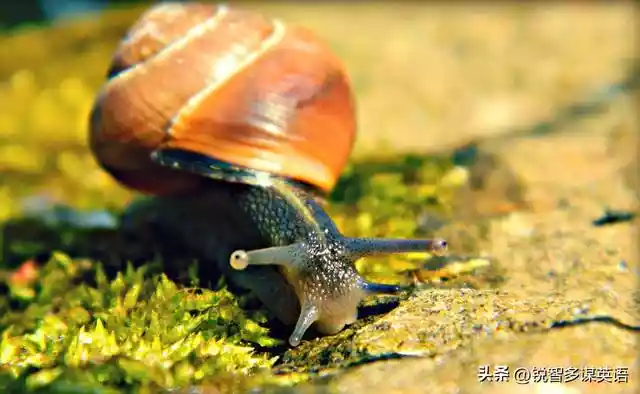
Meaning: Extremely busy. 涵义:非常繁忙。
This idiom originated from Chaucer’s “Canterbury Tales” (specifically, “The Squire’s Tale”) which was written around 1386. The English is very old, but the phrase remains popular to this day.
这个成语起源于乔叟写于1386年左右的《坎特伯雷故事集》(特别是《乡绅的故事》)。英语非常古老,但这个短语至今仍然流行。
“Lo, suche sleightes and subtiliteesIn wommen be, for ay as busy as bees.”
“瞧,女人们的诡计多端和狡猾,像蜜蜂一样忙碌。”
The above language looks very different from modern English, but the animal idiom is exactly the same. Today, the phrase is used to describe someone being very busy, but working with a purpose in a pleasant manner.
上述语言看起来与现代英语非常不同,但动物习语完全相同。今天,这个短语被用来形容一个人很忙,但以愉快的方式有目的地工作。
Example: My son is working on his science project. He’s been as busy as a bee all day.
例如:我儿子正在做他的科学项目。他一整天都忙得不可开交。
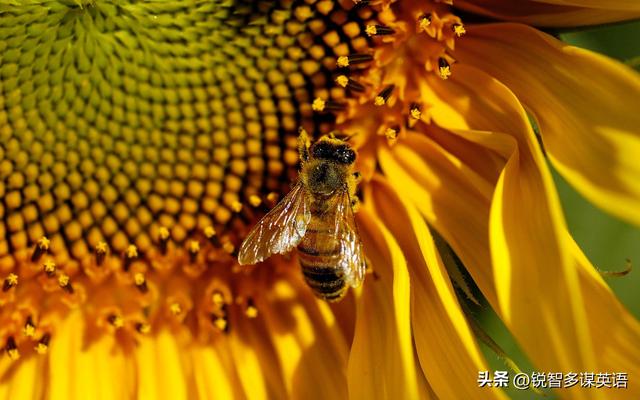
Meaning: Create a whole new set of problems该成语含义为“弄巧成拙”。
This phrase is often used when you try to solve a problem or answer a question, but you only create more problems or more questions.
当你试图解决一个问题或回答一个问题时,经常使用这个短语,但你在解决问题时只会弄巧成拙。
Nobody is sure of the exact origin of this idiom, but some people believe it came from a time when fisherman bought canned worms for bait. They would bring the worms to the fishing site, but if they knocked the can over, they had a whole new problem of catching their bait.
没有人知道这个成语的确切起源,但有些人认为它来自渔民购买罐头蠕虫作为诱饵的时代。他们会把蠕虫带到捕鱼地点,但如果他们把罐子打翻了,他们就有了一个全新的问题:如何抓住鱼饵。
Some also believe that “can of worms” is a modern version of the idiom, “Pandora’s box.” Pandora’s box comes from an old myth, and it also means to create a new set of problems.
一些人还认为“一盒蠕虫”是成语“潘多拉盒子”的现代版本。潘多拉的盒子来自一个古老的神话,它也意味着制造一系列新的问题。
Example: You’ve opened a real can of worms here.示例:你在这里将事情弄巧成拙。
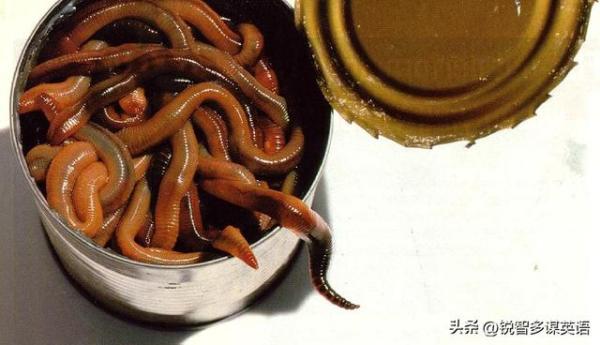
Meaning: Chasing something that’s very difficult (or impossible) to catch.意思是“很难实现或不可能达成”。(类似汉语中“竹篮打水”)
Imagine chasing a wild goose around and trying to catch it. Geese are fast, strong and awkward animals—catching one would probably be very hard, and it would also look very silly!
想象一下,追逐一只野鹅并试图将它抓住。鹅是快速、强壮和笨拙的动物。捕捉一只可能非常困难,而且看起来也很傻!
While many use the idiom “wild goose chase” to describe something that’s hard to catch, it’s also used to describe a chase that takes the pursuer in a lot of different directions.
虽然许多人用成语“Wild goose chase”来描述难以捕捉的东西,但它也被用来描述追逐者在不同方向上的追逐(努力)行为。
Example: You’re taking me on a wild goose chase, will you just give me an exact address where I should go?
例句:你要带我去做一场徒劳无益的付出,你能给我一个我应该去的确切地址吗?
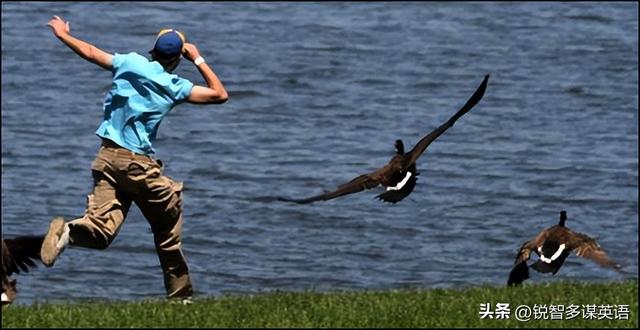
Meaning: You have many good opportunities in front of you.涵义是“面前大把机会”。
It’s not easy to open an oyster. Finding opportunities in the world is like opening an oyster, meaning it’s not easy.
打开牡蛎不容易。在世界上寻找机会就像打开牡蛎,这意味着不容易。
Sometimes, when you open an oyster, you’ll find a pearl. When you say that “the world is your oyster,” you have a positive outlook about the opportunities in front of you. If you have an oyster in your hands, it could contain a beautiful treasure that belongs completely to you.
有时候,当你打开牡蛎,你会发现一颗珍珠。当你说“世界是你的牡蛎”时,你对你面前的机会有一个积极的看法。如果你手中有一只牡蛎,它可能包含一个完全属于你的美丽宝藏。
Example: You just graduated from a wonderful university, so the world is your oyster!
你刚从一所很棒的大学毕业,所以世界就是你的了!

Meaning: Watching something very, very, closely仔细端详。
Children often hear this idiom from a parent or other caregiver, “I’m watching you like a hawk.”
孩子们经常从父母或其他看护者那里听到这个成语,“我像老鹰一样看管着你。”
It’s often used to make sure that someone or something doesn’t misbehave or make a mistake.
它通常用于确保某人或某事不会行为不端或犯错误。
Example: The boss watches us like a hawk. 例如,老板像鹰一样看管着我们。
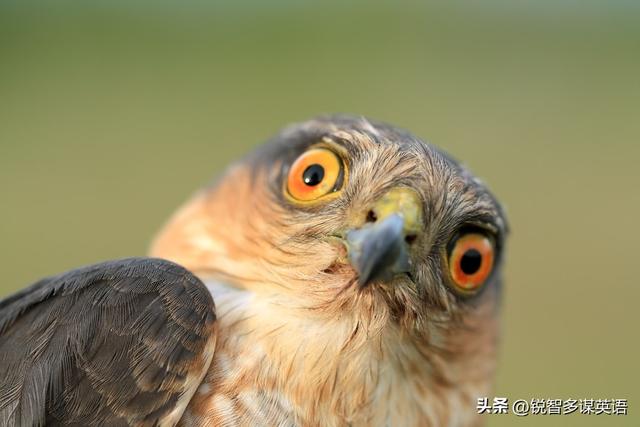
Meaning: Very angry, or furious愤怒或狂怒 (汉语用“疯狗”作为相对应的意向。)
A hornet is a type of wasp. When it gets angry, it can do a lot of damage, cause pain and generally be dangerous. If someone is saying that they’re as mad as a hornet, then they’re warning you to look out. While the term “mad as a hornet” is popular in the United States, other English-speaking countries and cultures often say something similar.
大黄蜂是黄蜂的一种。当它生气时,会造成很大的伤害,它的蛰刺会引起巨痛,通常十分危险。如果有人说他们像大黄蜂一样疯狂,那么他们警告你要小心。虽然“疯狂的大黄蜂”一词在美国很流行,其他英语国家和文化也经常说类似的话。
In the Southern region of the United States where farming was (and in some places still is) a major industry, people used to say the idiom “mad as a wet hen,” describing the anger a hen would have if you stole her eggs.
在美国南部地区,农业曾经是(在某些地方仍然是)主要产业,人们常说“疯得像只湿母鸡”,形容你如果偷了母鸡孵的蛋,它会暴跳如雷。
Example: Mom was as mad as a hornet when we broke the mirror.
我们将镜子打破了,母亲暴跳如雷。
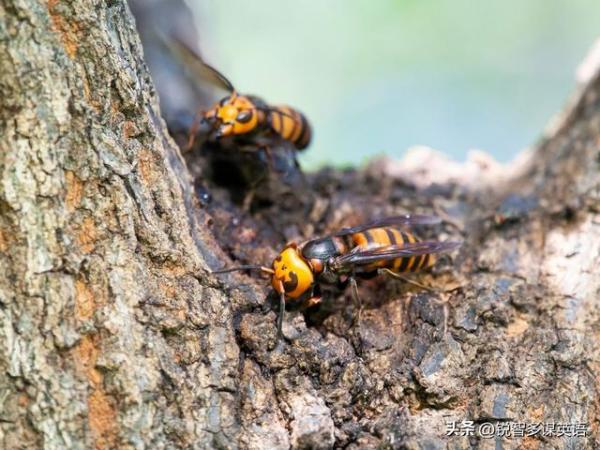
Meaning: Very competitive 竞争激烈
When you use this idiom, you’re saying that the competition is so stiff (intense) that people will do anything to get ahead, even if it means hurting someone. “Dog eat dog” may be used to describe a situation, a school, a company or an industry.
当你使用这个习语时,你是在说竞争是如此激烈,以至于人们为了取得领先不惜一切,即使这意味着伤害他人。“dog eat dog”可以用来描述一种情况、一所学校、一家公司或一个行业。
The exact origin varies. It may have come from similar phrases used in English writings from a long time ago. For example, one similar phrase was used in a 16th century Latin proverb which says “dog does not eat dog.”
确切的起源各不相同。它可能来自很久以前英语写作中使用的类似短语。例如,16世纪的一句拉丁谚语中使用了一个类似的短语,“狗不吃狗”。
Example: It’s a dog eat dog world out there.这是一个竞争激烈(残酷)的世界。

Meaning: Have excellent vision, or watching something very closely, not missing a detail 意思是:有很好的眼光,或者非常仔细地观察某件事,不遗漏任何细节
This animal idiom is similar to “watching like a hawk,” but when someone says “eagle eye,” they may not be referring to catching someone in the act of doing something wrong. If you have an eagle eye, it means that nothing gets past you because you are very focused on details.
这个同动物相关的习语类似于“像鹰一样看”,但当有人说“鹰眼”时,他们可能不是指抓住某人做错事的行为。如果你有一个鹰眼,这意味着没有什么可以超越你,因为你非常关注细节。
Example: The teacher goes over the tests with an eagle eye.
老师用锐利的目光监考。
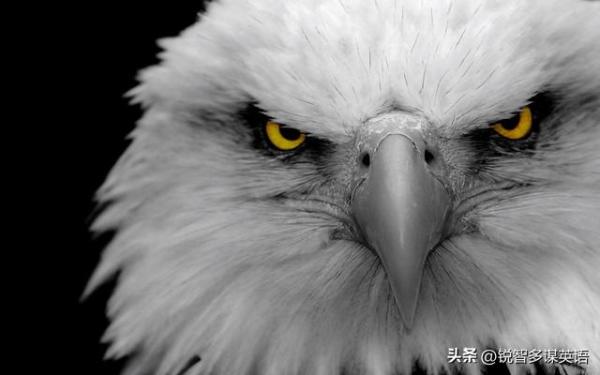
Meaning: Organize things 有条理的组织事物
When baby ducks walk behind their mother, they’re often in a straight line or “in a row.”
当小鸭跟在妈妈后面走的时候,它们通常是排成一条直线或“排成一排”。
If someone is telling you to “get your ducks in a row,” it means to straighten up and it usually refers to a project or task.
如果有人告诉你“Get your ducks in a row”,这意味着要将工作等打理好,通常指的是一个项目或任务。
Example: I’ll be reviewing things to make sure you have your ducks in a row.
例句:我会回顾一下,以确保你的工作有条不紊。
